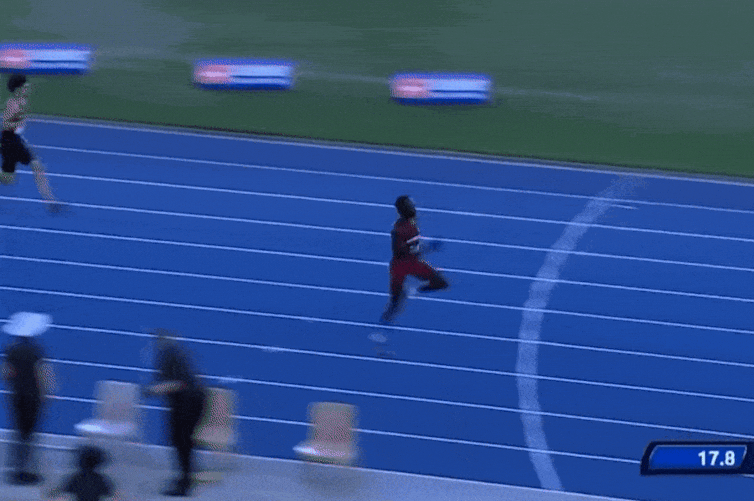 2024 Chemist Warehouse Australian All Schools Championships live stream, Australian Athletics
Dylan Hicks, Flinders University and roland van den Tillaar, Nord University
2024 Chemist Warehouse Australian All Schools Championships live stream, Australian Athletics
Dylan Hicks, Flinders University and roland van den Tillaar, Nord UniversityEvery now and then an athlete comes along who makes people wonder, “how are they so fast?”
Let me introduce you to Gout Gout.
Gout is a 17-year-old sprint sensation from Australia, whose blistering 100m and 200m times have drawn comparison to none other than Jamaican sprint legend Usain Bolt.
While he was edged out over 200 metres in Melbourne last weekend by 21-year-old Lachlan Kennedy – recent 60-metre world indoor silver medallist who is a rising sprinter poised to break the ten-second barrier for 100 metres – Gout’s performances continue to signal a bright future on the track.
In a seven-month period since last August, Gout has:
- won silver in the 200m at the World Junior Championships (20.60 seconds, -0.7 metres/second wind)
- broken Peter Norman’s long-standing Australian 200m record (20.04 seconds, +1.5m/s)
- two weeks ago in Brisbane, smashed through the magical 20-second barrier for the 200m, recording a world-leading 19.98 seconds (+3.6m/s), albeit wind-aided (anything greater than 2.0 metres/second is considered wind-aided).
But what makes Gout so fast?
Is it his explosive start, long stride, top speed or smooth technique?
The answer, as with all athletic outliers, is likely a combination of several unique attributes.
Let’s dive into the science.
The science of sprinting
Sprinting is an ongoing battle of force and mass.
Gravity is pulling the athlete’s body mass down. Meanwhile, the athlete must apply muscular force into the track to keep the body upright.
Research suggests the world’s fastest sprinters generate the highest ground reaction force relative to their body mass and apply it in the shortest period, in the right direction (more horizontally in acceleration and more vertically at top speed).
At 5'11" (180cm) and 66kg, Gout does not display the muscular physiques of past champion sprinters including Asafa Powell (Jamaica), Justin Gatlin (the USA), or Australia’s own Matt Shirvington. Yet his performances suggest is he redefining the archetype of elite sprinting.
For anyone who has run at school, you know the difficulty of holding your top speed for the duration of a 200-metre race.
But Gout defies logic. His speed endurance (maintaining speed) sets him apart from nearly all athletes.
And not just compared to his age group, although he currently sits second on the all-time under-18 200-metre list behind US runner Erriyon Knighton.
Gout’s speed endurance is up there with the best in 200-metre history: Bolt, Michael Johnson or Noah Lyles. Each of them has won multiple Olympic medals.
The fastest official 100-200 metre segment (the final 100 metres of the race) ever run in a 200-metre event is 9.16 seconds by American Lyles, on his way to winning the 2022 world athletics championships in Oregon (19.31 seconds overall).
In Gout’s recent performance in Brisbane, he completed this segment of the race in 9.31 seconds. Bolt and Johnson’s best 100-200 metre segment is 9.27 and 9.20 seconds respectively.
This statistic puts Gout in elite company.
The magic of Gout
Closer analysis of Gout’s performance highlights some sprinting anomalies.
He covers the first 100m of the race in 10.67 seconds, which is quite slow relative to his finishing time of 19.98.
For comparison, when Bolt broke the 200-metre world record in 2009 (19.19 seconds), he ran 9.92 seconds on the curve (and 9.27 seconds on the straight).
But once Gout enters the straight, his magic is on full display.
Gout has an average step length of 2.60 metres. Bolt’s average step length in his 100-metre world record performance was 2.45m, with Lyles displaying a similar result, 2.35m, in his 100-metre win in Paris.
This allows Gout to take between 3.75-4 steps for each ten-metre segment, which he covers at an average speed of 10.8m/s (or 38.8km/h). Like Bolt, his step length is a huge advantage over his competitors.
However, there is a trade-off with step length and step frequency.
Gout’s longer-than-average step length reduces his average step frequency to 4.15Hz (steps per second), much lower than Bolt who averaged 4.47Hz when at his best.
However, research highlights elite sprinters are reliant on either step length or frequency, and athletes should train to their strengths, rather than fixing their weaknesses.
So this may not be an area of concern for the teenager.
Gout also displays a unique coordination pattern in how he interacts with the ground: the way he strikes the track with his feet almost makes it look like he has springs in his spikes.
Well, we all do in a sense.
Elastic energy is stored and released in our Achilles tendon which acts as a muscle power amplifier during running.
Longer Achilles tendon length and stiffness play a huge role in sprint efficiency. This allows athletes to move at faster speeds for longer periods at a reduced energy cost, and may be another one’s of Gout advantages over his contemporaries.
A bright future
At 17, Gout’s performances are out of this world.
The way he generates and maintains speed challenges some conventional paradigms in sprinting – namely that raw power and muscle mass are the primary determinants of speed.
With most elite sprinters peaking in their mid-20s, Gout’s performances at this stage of his career are even more noteworthy.
His success likely highlights the role of his unique coordination patterns, biomechanics, technical efficiency, hard work and great coaching all bundled together.
Gout has already rewritten Australian sprinting history. Next up, he’s taking on the world.
Just don’t blink – he’s that fast, you might miss him.![]()
Dylan Hicks, Lecturer & Movement Scientist / PhD Sports Biomechanics, Flinders University and roland van den Tillaar, Professor in Sports Science, Nord University
This article is republished from The Conversation under a Creative Commons license. Read the original article.

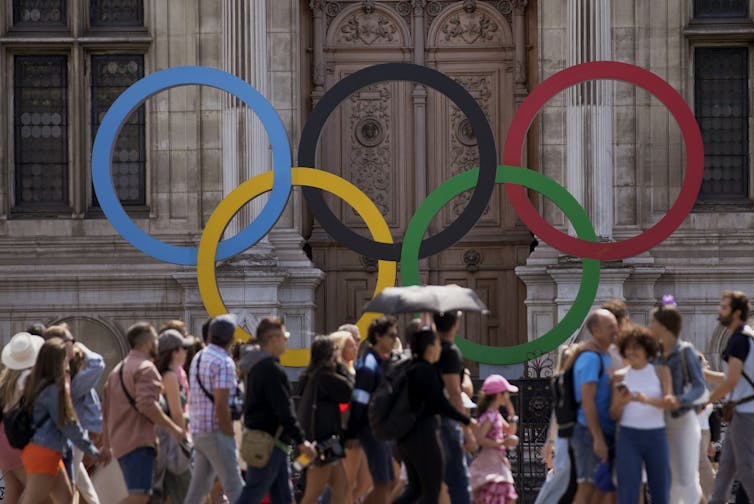
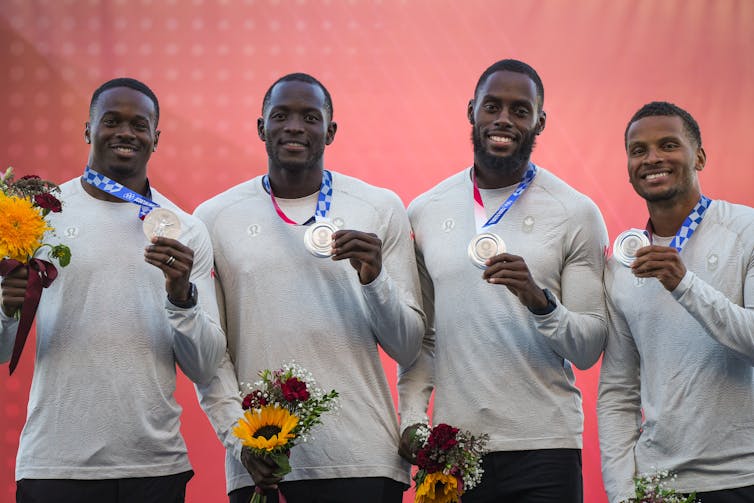
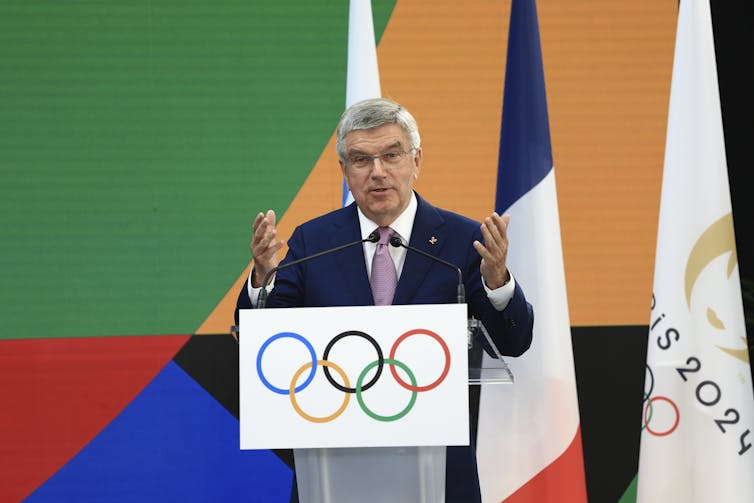





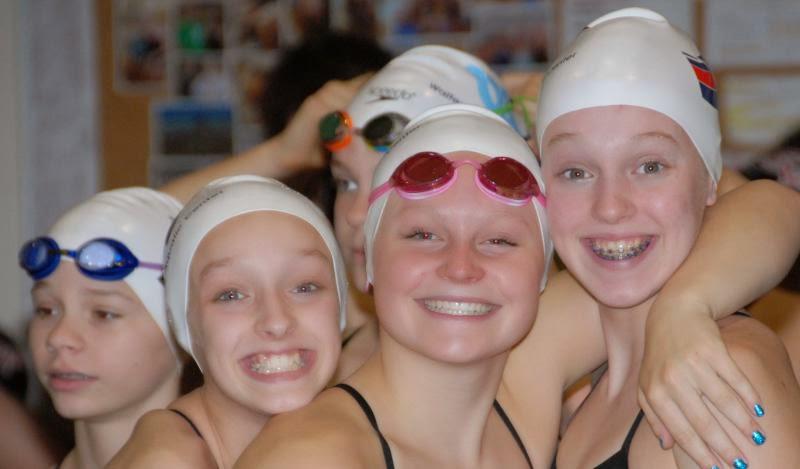
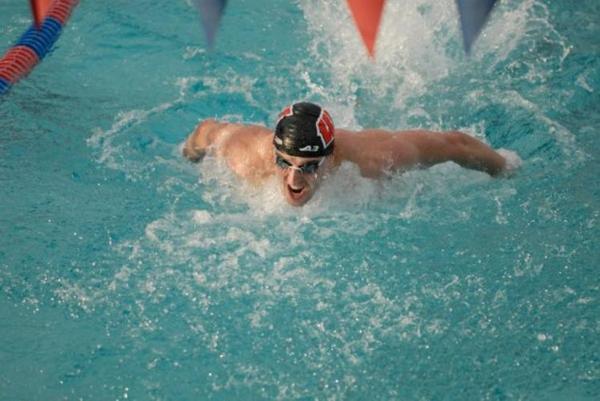
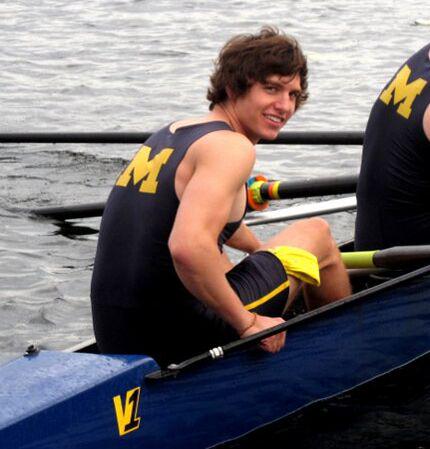
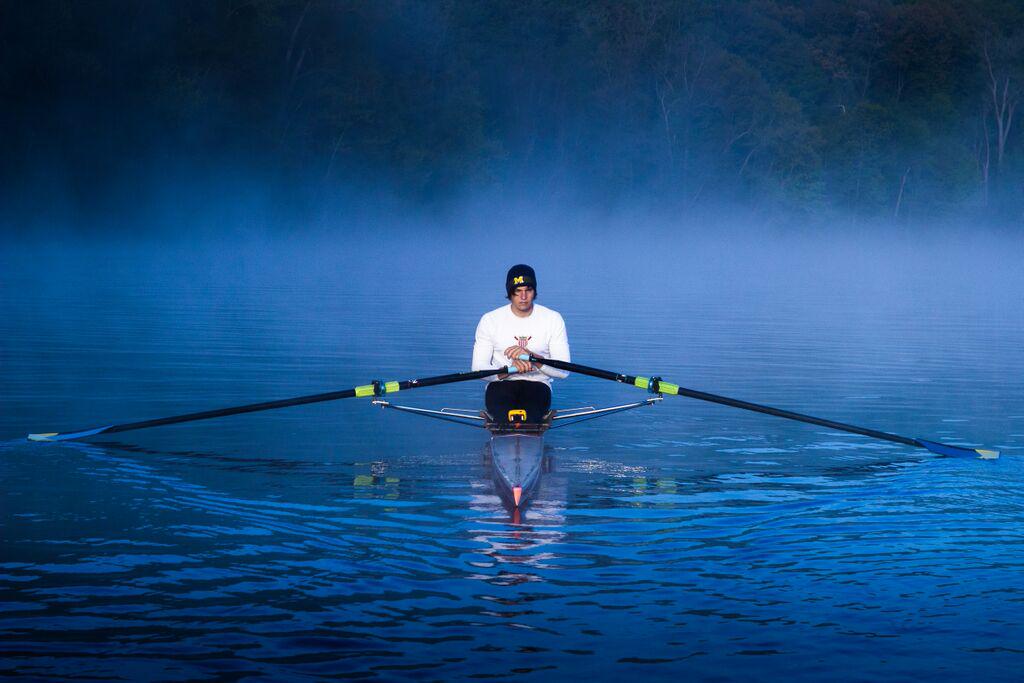
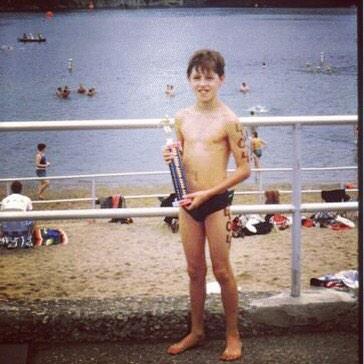








.jpg)
















































